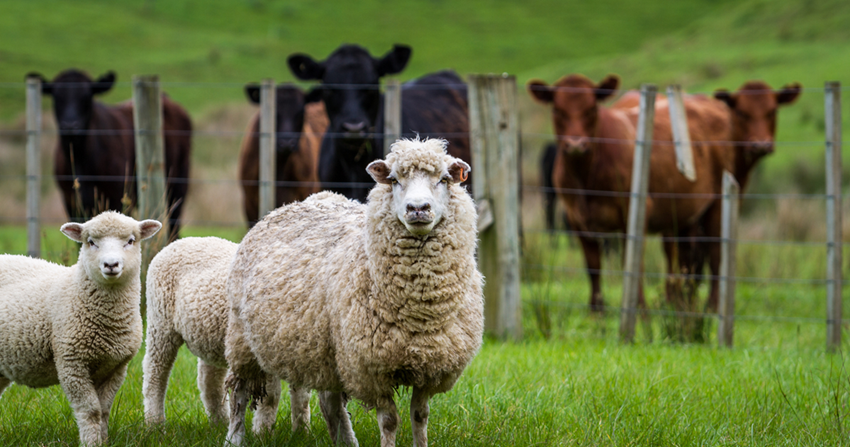Sheep and beef farming is a key component of not just New Zealand’s agricultural industry, but also the nation’s economy. Like many other agricultural sectors, sheep and beef farmers are impacted by weather fluctuations, evolving consumer preferences, global trade dynamics, and economic factors. So how are these farmers doing currently, and what can they expect in the coming months?
Pricing and production - a mixed bag
In positive news, beef prices and demand remain robust, driven by a global supply shortage. Consecutive years of drought in North America’s cattle-producing regions have forced US ranchers to downsize their herds, leading to heightened demand for Kiwi beef.
Looking ahead, Beef + Lamb NZ forecasts that cattle prices will remain strong during the 2024-2025 season but anticipates a decline in local beef production. This is attributed to a decrease in the cattle population caused by drought conditions, and fewer calves raised two years ago due to profitability issues.
Meanwhile, lamb prices have improved throughout 2024 and there is strong demand from European and US markets. However, China’s demand for sheep meat has decreased, while Australia’s supply has increased, both of which have a knock-on effect on the demand for and price of New Zealand products.
Land use is another factor in the price and production of beef and sheep meat. With many New Zealand sheep and beef farms converted to forestry in recent years, land use for sheep, beef, and deer has declined by 20% between 2011 and 2023, according to the Ministry for Primary Industries. Much of this land was breeding blocks, which now presents a challenge for sheep farmers in particular.

Climate concerns remain
By and large, the adverse weather events of the past few years seem to have eased off in 2024, which is good news for farmers. Most of New Zealand had a mild winter which means many farms now have an abundance of feed as they head into spring.
The sector is heavily impacted not just by the nation’s weather patterns, but also by climate regulations. Agriculture and forestry play a key role in reducing greenhouse gas emissions, and farmers should take the time to understand how any regulations could impact their farming, processes, and profit.
Economic conditions impact farmers
Business leaders across New Zealand are grappling with challenging economic conditions, and beef and sheep farmers are not immune. Farm profitability was worse than forecast in 2023-2024, and Beef + Lamb NZ is forecasting farm profit to decrease by 7.4% in the 2024-2025 season, due to increased expenditure and high interest rates.
More positively, farmers will likely be pleased with the Reserve Bank’s recent OCR cut and may see some light at the end of the tunnel, however the impact of reduced interest rates will take time for the sector to feel significant relief.
Seeking support
Times are tough for many in the industry right now, but there are steps sheep and beef farmers can take to weather the storm:
-
Be proactive. Taking action early can save money and stress down the line. One example of proactivity is farmers working with their accountants to prepare their financial statements and tax returns earlier than usual, allowing any tax refunds to be paid out straight away. This is particularly beneficial if tax refunds are material and can help to manage or reduce future provisional tax payments.
-
Understand your costs. Having a firm handle on your financials - including income, profits, and outgoing spending - is essential. Your trusted adviser can help with this.
-
Manage your banking relationships. Stay close to your banker and keep a close eye on interest rates and other banking products. Initiate regular conversations with your bank - let them know early if you’re having any problems and seek out information that could help you improve your situation, for example if there is a more efficient way to structure your finances.
-
Consider subdividing. This won’t work for every farm owner, but at BDO we are seeing some farmers subdivide their land or look at alternate land use to repay debt.
Finally, make sure to keep your accountant and other trusted advisers in the loop – we’re here to help. Learn more about what BDO’s specialist agribusiness team does here.